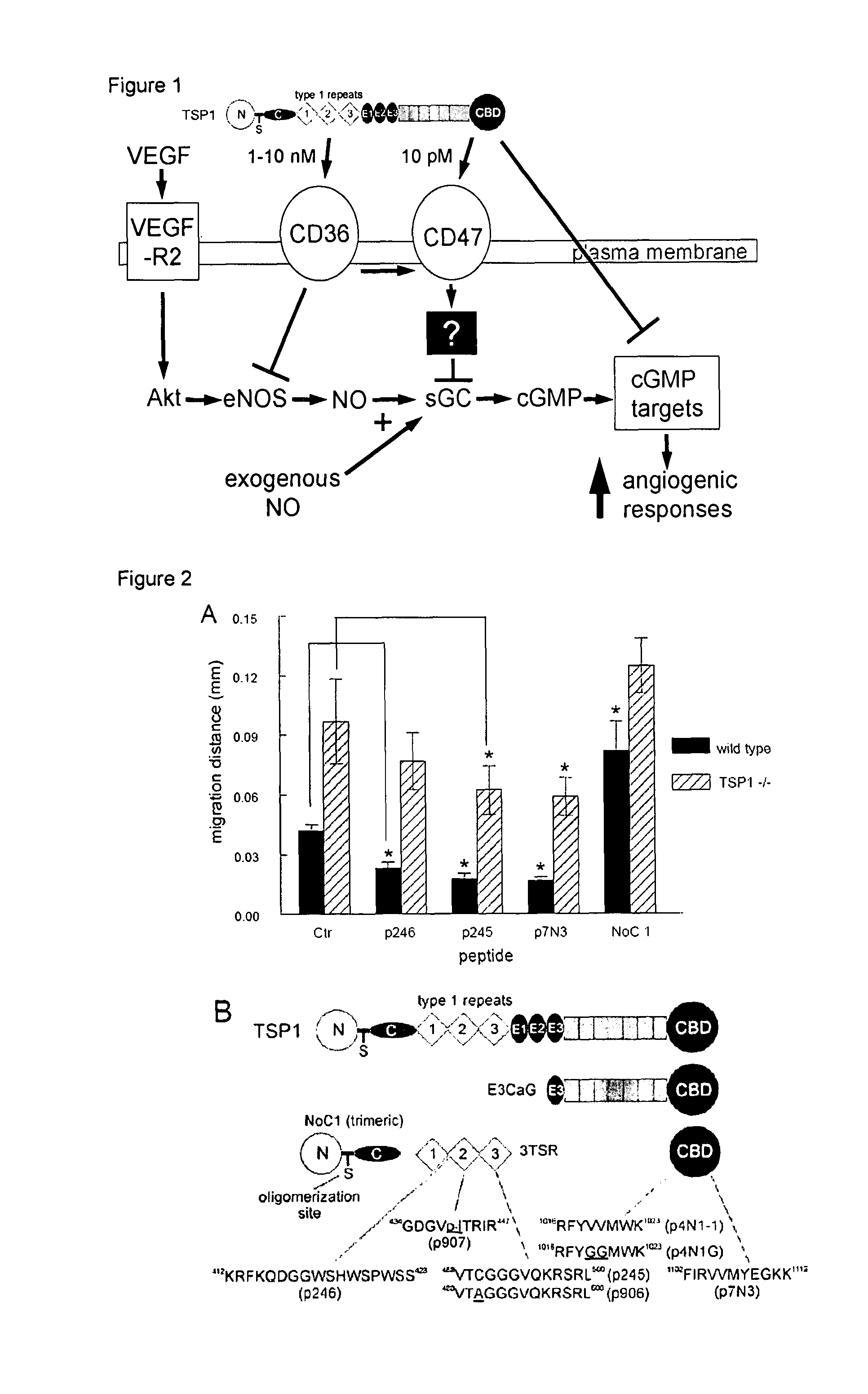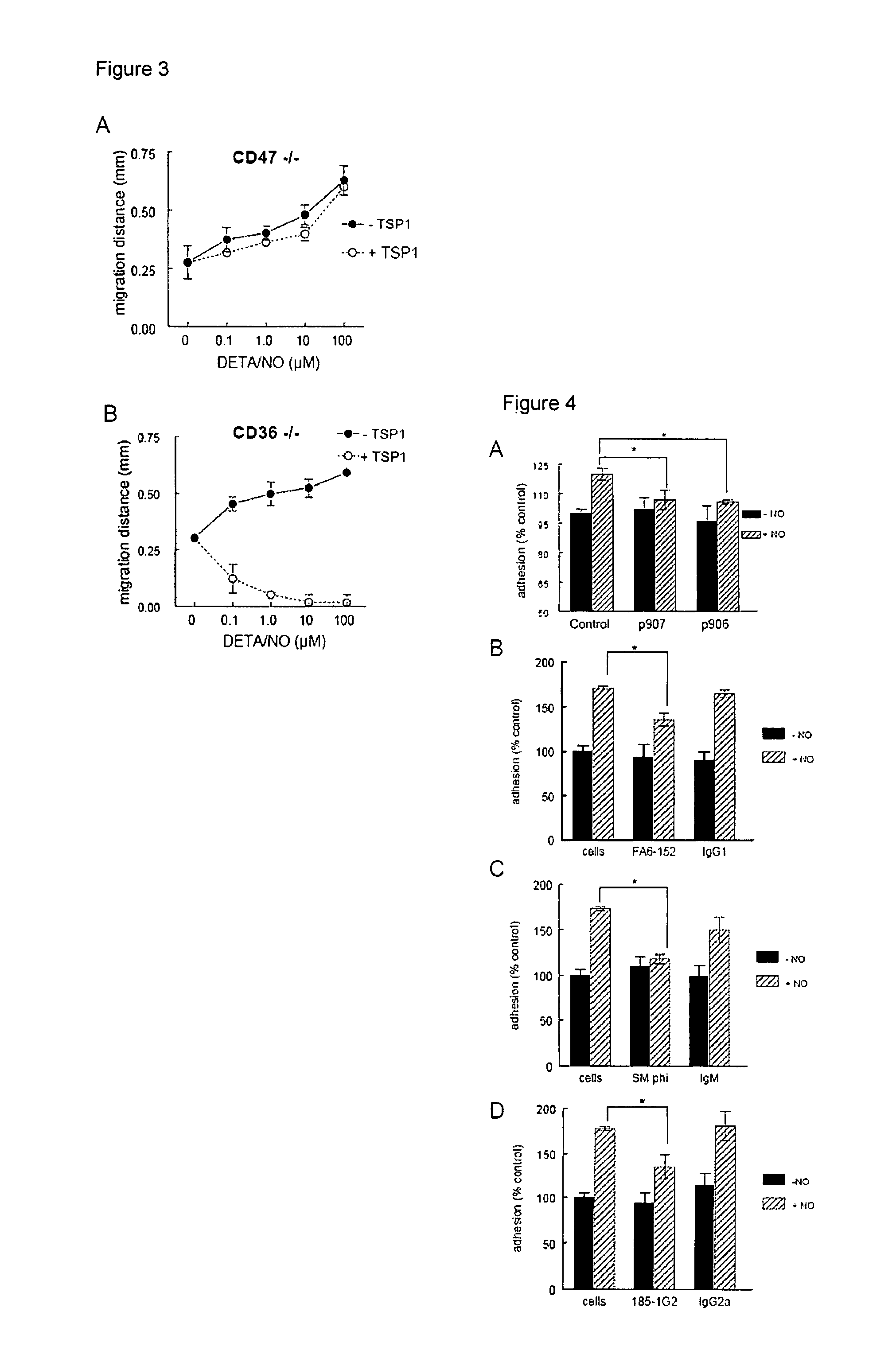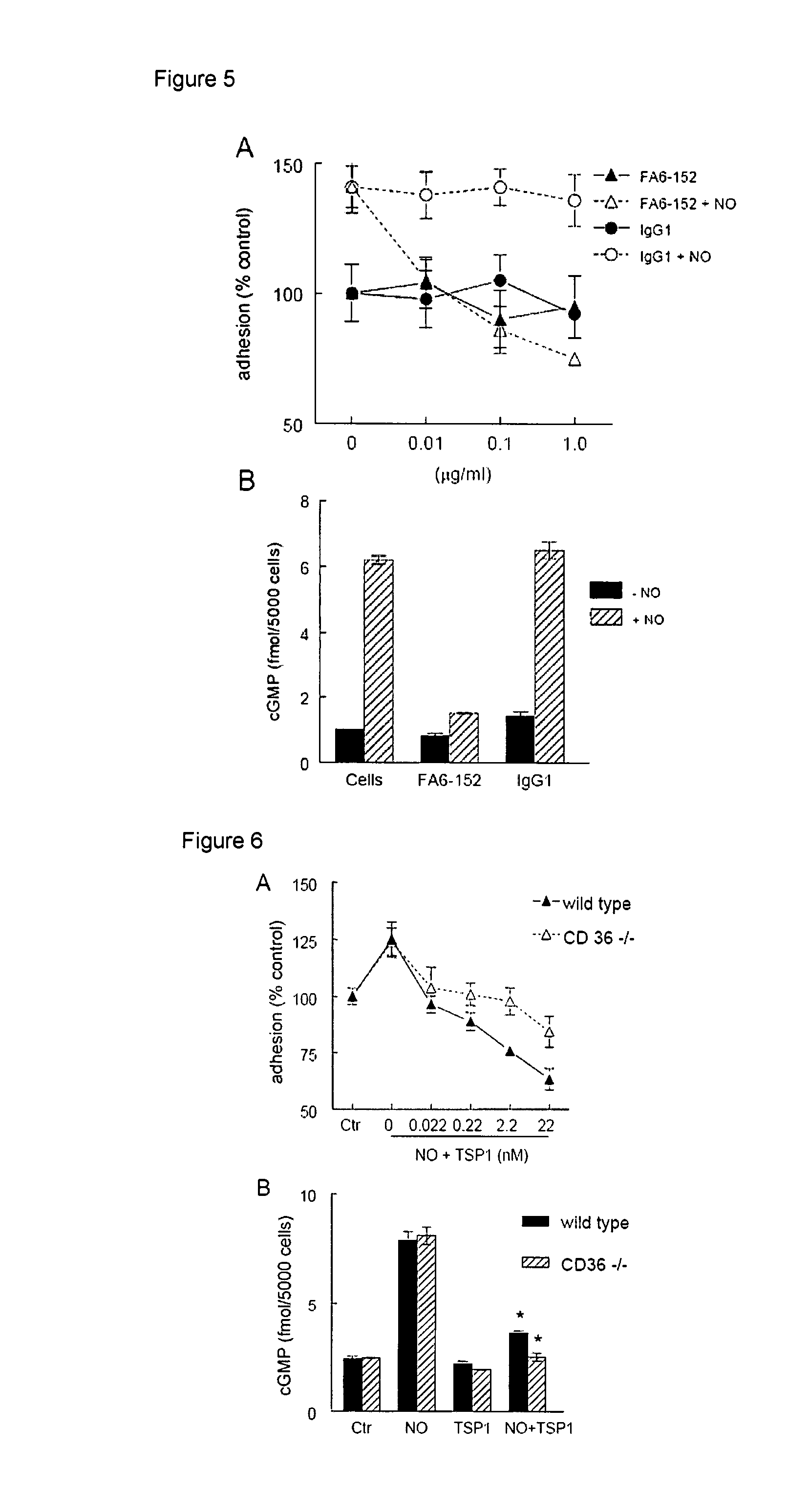Prevention of tissue ischemia, related methods and compositions
a tissue ischemia and tissue technology, applied in the field of tissue ischemia and blood flow prevention, can solve the problems of tissue death and wound healing, limited success of promoters, significant diseases, etc., and achieve the effects of increasing tissue oxygenation, increasing blood flow, and dramatically improving blood flow
- Summary
- Abstract
- Description
- Claims
- Application Information
AI Technical Summary
Benefits of technology
Problems solved by technology
Method used
Image
Examples
example 1
CD47 is Necessary in Inhibition of Nitric Oxide-Stimulated Vascular Cell Responses by Thrombospondin-1
[0404]The anti-angiogenic activity of TSP1 is dramatically potentiated in the presence of low concentrations of nitric oxide (NO) donors. This activity is mediated at least in part through inhibition by TSP1 of cGMP signaling via NO-mediated activation of soluble guanylyl cyclase in both endothelial cells and VSMC. Moreover, TSP1 null vascular cells exhibit elevated basal cGMP levels and enhanced cGMP and phenotypic responses to exogenous NO. The inhibitory activity of TSP1 on NO signaling was replicated by an agonist CD36 antibody and by a recombinant CD36-binding region of TSP1. This example demonstrates that a second TSP1 receptor, CD47, plays the primary role in mediating the inhibitory activities of TSP1 for vascular cells. Remarkably, CD47 is also necessary for inhibition of NO signaling by CD36 ligands. At least portions of this example were published in Isenberg et al., J. B...
example 2
Thrombospondin-1 Limits Ischemic Tissue Survival by Inhibiting Nitric Oxide-Mediated Vascular Smooth Muscle Relaxation
[0432]NO is a key signaling molecule in ischemia. NO stimulates vascular smooth muscle cell (VSMC) relaxation to increase blood flow and tissue perfusion. Low dose NO also has pro-angiogenic and anti-inflammatory activities. Consistent with these activities, elevating NO levels increases tissue survival in situations of ischemic insult.
[0433]This example demonstrates that TSP1 antagonizes NO signals to regulate the actin / myosin cytoskeleton and contraction of VSMC in vitro. Endogenous TSP1 modulates acute effects of NO in vivo on tissue perfusion and blood oxygen levels in healthy muscle and in ischemic tissues following surgery. Furthermore, soft tissue survival in ischemic myocutaneous flaps is increased in the absence of endogenous TSP1, and this negative effect of endogenous TSP1 upon tissue survival is NO dependent. At least portions of this example were also pu...
example 3
Blockade of Thrombospondin-1-CD47 Interactions Prevents Necrosis of Full Thickness Skin Grafts
[0465]Skin graft survival and healing requires rapid restoration of blood flow to the avascular graft. Failure or delay in the process of graft vascularization is a significant source of morbidity and mortality. One of the primary regulators of blood flow and vessel growth is nitric oxide (NO). The secreted protein thrombospondin-1 (TSP1) limits NO-stimulated blood flow and growth and composite tissue survival to ischemia. We herein demonstrate a role for TSP1 in regulating full thickness skin graft survival.
[0466]Full thickness skin grafts (FTSG) consistently fail in wild type C57 B1 / 6 mice but survive in mice lacking TSP1 or its receptor CD47. Ablation of the TSP1 receptor CD36, however, did not improve FTSG survival. Remarkably, wild type FTSG survived on TSP1 null or CD47 null mice, indicating that TSP1 expression in the wound bed is the primary determinant of graft survival. FTSG survi...
PUM
| Property | Measurement | Unit |
|---|---|---|
| diameter | aaaaa | aaaaa |
Abstract
Description
Claims
Application Information
 Login to View More
Login to View More - R&D
- Intellectual Property
- Life Sciences
- Materials
- Tech Scout
- Unparalleled Data Quality
- Higher Quality Content
- 60% Fewer Hallucinations
Browse by: Latest US Patents, China's latest patents, Technical Efficacy Thesaurus, Application Domain, Technology Topic, Popular Technical Reports.
© 2025 PatSnap. All rights reserved.Legal|Privacy policy|Modern Slavery Act Transparency Statement|Sitemap|About US| Contact US: help@patsnap.com



